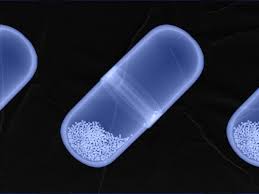We have recently seen this change significantly as our has focused on becoming the leading clinical trials experience for this specific mutation, particularly in pancreatic cancer (1), colorectal cancer,(2) and even lung cancers. The mutation KRAS G12D, in particular—resulting from a substitution at codon 12 of the KRAS gene—is both oncogenic and confers an active state on mutated form of this protein through inhibition to GDP/GTP exchange factor [27]. Until recently, KRAS has been considered undruggable as the protein is super flat with not very many nooks and crannies that you could slide an inhibitor into. Nevertheless, progress in drug design have resulted in clinical trials of several exciting prospects.
Early-phase KRAS G12D inhibitor trials report safety, tolerability and initial efficacy cues By 2023, more than 10 ongoing clinical trial were addressing the KRAS G12D mutation worldwide. Small-molecule, cyclic peptide and other new drugs have been developed that are more advanced among which the candidates for inhibiting KRAS G12D with high specificity as low off-target require special mention. Roche Cyclic Peptide Inhibitor: A case in study is the Roche's cyclic peptide inhibitor that began phase 1 clinical trial towards the end of 2022. Results of the phase IIa IPED202-15 trial in about 60 patients with KRAS G12D-positive advanced solid tumors are anticipated to be available by mid-2024.
The mechanism of action (MOA) for these inhibitors often involves binding to the GTP-binding site on KRAS or disrupting its interaction with downstream effectors RAF and MEK. Specifically inhibiting the G12D mutation would allow the drugs to shut down tumor growth without interfering with normal KRAS function, sparing lots of potential side effects. Previous preclinical studies showed that these inhibitors were able to shrink certain kind of tumors up 70% so there is a potential for selecting tou Based on previous study.

Dose escalation and safety in clinical settings. These applications depend on industry terms like 'maximum tolerated dose (MTD)', 'dose-limiting toxicity (DLT)' and, "pharmacokinetics. Early data from these Phase 1 trials showed the inhibitors are safe to take and cause mild side effects, including fatigue; gastrointestinal problems such as diarrhea or nausea; and a rash at the site of injection. Crucially, there have been no reports of severe off-target effects with such inhibitors and so these should be considered as potential front runners for development.
It is also keeping a close eye on signals about efficacy. In an interim report from one trial in 2022, some response was recorded in a few patients (20% of partial responses and stable disease results for the other 40%) suggesting that these inhibitors may have substantial usefulness as control drugs. This is especially pertinent in pancreatic cancer where the 5-year survival rate remains <10% [6]. With a group that has proven difficult to dose, any efficiency at all would signify an enormous progress.
The market for KRAS G12D inhibitors is becoming increasingly crowded. Other companies, including Mirati Therapeutics and Amgen, also are pursuing various strategies to go after this mutation besides Roche. Although most KRAS-directed therapeutics have concentrated on the G12C mutant that is more frequent in NSCLCs, targeting other gain-of-function mutations such as G12D could address a significant unmet clinical requirement for malignancies like pancreatic adenocarcinoma.
Charles Sawyers, a top oncologist and laboratory researcher in New York who was not involved with the research, said that “this is clearly progress toward precision oncology for KRAS mutations now focused especially on G12D.” The good news is that patients who only a decade ago had few treatment options are starting to have choices now. The upbeat declaration points to the hope that these trials are as transformative as we think.
As those trials develop, the next steps are to progress into larger Phase 2 studies and in support of efficacy within tumor types more highly selective for ATP levels as compared with other therapies. There are resources available that track these things to the best of their ability so for anyone interested in noting this progress you might want to check out something like kras g12d clinical trials.
Taken together, KRAS G12D clinical trials are progressing and showing encouraging initial evidence of both safety and efficacy. With the discovery of increasingly promising inhibitors and combinatorial therapies under development by the research community, there is strategic cause for hoping that patients with KRASG12D-driven tumors will finally have effective treatments at reach.